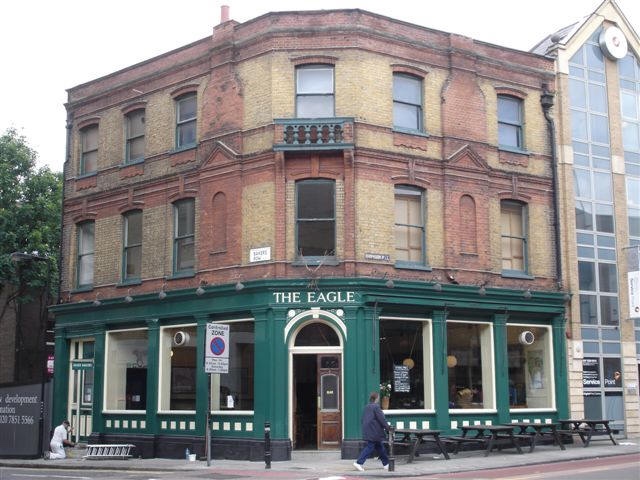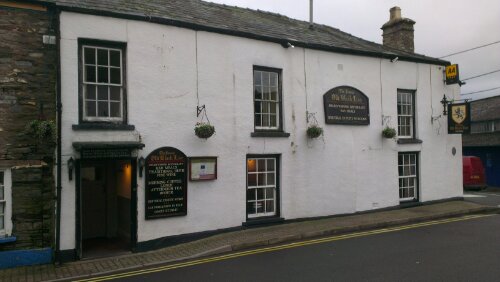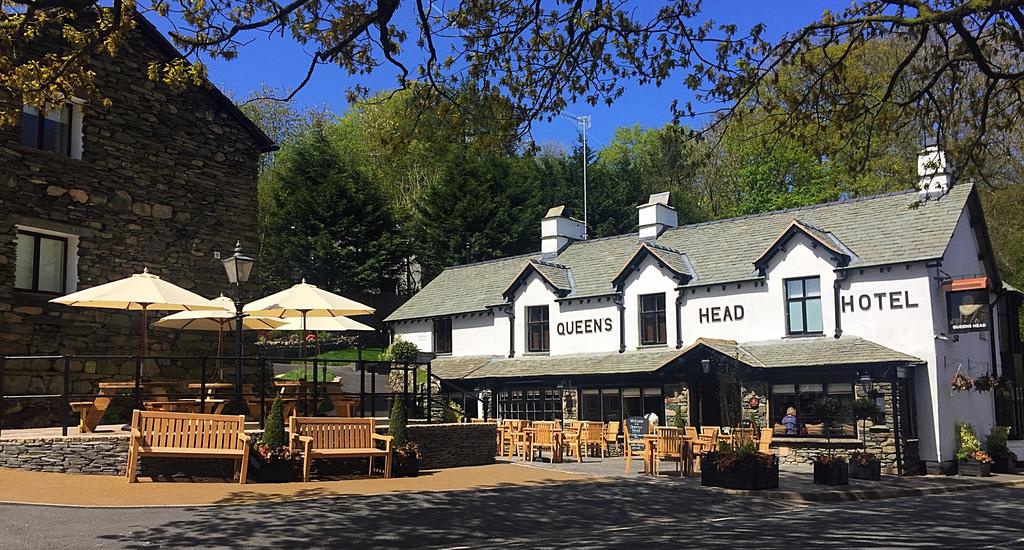A pint of Real Ale sat next to a roaring log fire, you’ve got to love a traditional Great British Pub……

At this time of year during the Christmas holiday, a cosy local pub and the welcome of a real log fire and the promise of good real ale is on my list of all time favourite things.
The Great British Pub is an institution, it has been around for a very long time and has evolved many times in it’s long lifespan. It has a special place in my heart and has shaped the modern culinary scene throughout its history. I have spent some time researching its origins and along the way, realised how it was so pivotal in shaping my early career. Even now, when I think back, I can still feel the excitement of being involved at the cutting edge of the Gastro Pub movement. More of that later…..

Since the beginning of early civilisation and the use of money, Taverns and Inns have existed in some shape or form to provide sustenance for the weary traveller or pilgrim. During Roman times in Britain all the travel routes and towns had tabernae which served food, wine and possibly ales made by local monks at their monasteries. These were all almost lost after the Romans left the British Isles and hostels serviced by monks took over and continued for a while. It wasn’t until the 11th century that references to ale houses started to appear in texts. By the 16th century a new better class of establishment had evolved to cater for a more modern, wealthier class of traveller- they had more discerning needs and were willing to pay well to have them catered for; the pub as we know it was born. This was further shaped by the coaching boom of the early 19th century, with increased travel and the need for regular stops to refresh horses, there was a huge increase in the number of coaching Inns across the highways and byways of Britain and throughout the towns and villages.
Fast forward a few hundred years and Pubs and Inns continued providing a service for travellers and drovers taking livestock to towns for market. This continued in some shape or form until after the Second World War, they were the essential hub of towns and villages and were the cement that held communities together.
After the war years pubs evolved again, they expanded and developed their offer and their food for a wider market. The growth of modern housing estates and suburbs gave them a renewed purpose and these newly designed custom built premises enabled them to welcome families and they became more polished and presentable. Suddenly pubs were respectable places that offered a greater range of food and non-alcoholic drinks for an emerging market. There were still a hardcore of traditional pubs though that continued to serve just alcohol and only offered bar snacks in the way of crisps, nuts, pork scratchings & pickled eggs. Some had strict rules like no women or children allowed in the public bar only in the lounge.
In the 70’s Berni Inns and Beefeater pub chains launched the concept of the evening pub meal, this gave birth to the pub chain. They developed a range of dishes that, love them or hate them, they will forever be part of our culinary heritage. Dishes such as the Prawn Cocktail, Steak au Poivre with chips, onion rings and peas and the infamous Black Forest Gateaux will always be associated with this era. At about the same time the concept of the basket meal appeared. During the 80’s technology and food processing techniques fuelled another boom time in the history of the humble pub. The arrival of the microwave meant the smallest establishments with limited space for a kitchen, could now churn out bought in mass produced food from trunk freezers. This food was bought in bulk and with high margins, there was serious money to be made without excessive overheads or expensive chefs. These were dark times in our culinary history! But boom time was here and every publican it seemed, was driving a Jaguar or Range Rover with a personal number plate, and were bronzed by the frequent trips to their villa in Spain. This continued right up until the 90’s.

Thankfully this came to an end in 1991 when David Eyre and Mike Belben took over the Eagle pub in Clerkenwell, these two men had a vision to revolutionise the Pub dining sector, which had become extremely poor and lack lustre. The vision they had was a simple concept, to bring restaurant quality food into a Pub setting using quality, fresh ingredients cooked from scratch by trained chefs, but maintain a sensible pricing structure and make it accessible as well as affordable. The restaurant scene itself was going through a stagnant time where they were deemed pricey and pretentious, and if you hadn’t booked you weren’t coming in. The new Gastro Pub movement took full advantage, if a table was empty you could have it. The food was of high quality and increasingly more interesting, as chefs moved away from the traditional constraints of fine dining, a la carte menus and cooked with passion and sincerity, using local ingredients and pushing seasonality, they were on to a winner.
When I took my first baby steps in professional cooking I’m happy to say that it was in a pub kitchen setting, it was 1996 at The Old Black Lion, Hay on Wye a traditional drovers Inn on the Welsh/English border. By then the Gastro Pub movement had really gathered some momentum and we were recognised with two AA rosettes for food, were in the Egon Ronay guide, The Good Food Guide and also the Michelin Guide with a knife & fork as a pre requisite to stars. The energy was incredible, we really thought we were pioneers and we pushed hard to achieve and accomplish greatness, the rules were being re-written and we were in uncharted territory, there were whispers but nobody seriously thought a pub could achieve a Michelin star, could they??

I finished my apprenticeship at The Old Black Lion and landed a great job in another Pub with rooms. The Queen’s head Inn, Troutbeck, Cumbria was along way from home, but the job was live in, the pay was good but more importantly I’d spent time with the head chef, as he had worked covering the Head chef at The Old Black Lion a year before. I must of made an impression as he remembered me and invited me up for an interview for Chef de Partie, he had a good pedigree and was looking to make a name for himself so I knew I was in good hands. I left Hay on Wye and drove up to my new home in the Lake District.

As the Gastro Pub movement gathered real momentum chefs were becoming increasingly experimental there were new takes on old classic pub dishes, the Prawn Cocktail had a makeover, it was now a Crayfish cocktail with Bisque sauce and traditional steaks and sauces made a revival with Diane Sauce and Steak Frites with Bearnaise sauce. Pub bar space disappeared fast as every bit of space was used for table dining, table cloths and wine lists were the norm and the move to table service followed. Pubs had evolved again and were no longer the stronghold of the drinker. Not everyone was happy but it made good business sense, and with the smoking ban arrival it meant that the Pub restaurants and Pub dining were more accessible than ever before.

In January 2001 a monumental event happened the unobtainable was obtained, the announcement in the Michelin guide of the first Pub to be awarded a Michelin star, but where was this hallowed ground? This place of Pilgrimage for every chef working Pub kitchens up and down the country who dared to believe, rumours were rife, surely London way? But no, it was on my own doorstep in my home county of Herefordshire, this was huge, I packed my bags and headed home and was happy to have landed myself an interview at The Stag Inn, Titley, Herefordshire. I met the Head chef and owner Steve and spent a couple of days working in his kitchen, he had an army of like minded young chefs at his disposal all desperately trying to get a job in his kitchen, who was I kidding? I’d barely been cooking 4 years and as good as I thought I was, there was always going to be someone better, my work trial ended and the inevitable don’t call me, I’ll call you was muttered, crushed though I was not to get in on the action, I picked myself up and moved back to Hay on Wye and got myself a job at the Michelin starred Llangoed Hall country house hotel as a pastry chef. So off I went back over the border to Wales.

Llangoed Hall was an awesome place different to anywhere I’d ever worked, the head chef Ben Davies was a truly remarkable chef, he had worked with Marco and with that culinary pedigree running through his veins I learned quickly. I couldn’t settle though, compared to the buzz of the Pub kitchen which was chaotic, frantic and at times pure insanity, this was calm, calculated with a distinct lack of customers, I felt cut off and was missing the buzz. I called in to the Griffin Inn, Llyswen after a particularly quiet shift at “the hall” that evening, it was the start of winter. I left the cold dark kitchen, drove up the long dark driveway then walked through the doors of the Griffin, the place was rammed, every table full with a queue of people waiting. The log fire was roaring and the heat and the buzz was intoxicating. The landlord Richard, was wearing half moon spectacles, a cravat, shirt & tweed jacket he called out to me over the din, “can I help you?” The kitchen bell was ringing frantically and he seemed rather flush, I swiftly ordered a pint, exchanged some niceties and let him get back to running food. I watched the food coming out it looked pretty good, but I knew I could do better! I called back the following day with my dad to gage his opinion, it was before lunch everything was calm an orderly and the log fire has just been lit, the landlord called out to me “it’s you?, you were here last night, sorry but it was particularly busy, I didn’t have time to catch up with you”. He’d obviously done his homework talking to the locals that night, he knew who I was and he’d got to work on me. It was agreed that I would hand in my notice at “the hall” to start as a live in second chef with a view to becoming head chef later that year, when the current head chef was due to move on. I was back where I belonged in a busy award winning Pub kitchen with all the possibilities ahead I was ready to shoot for the stars……

Andrew Addis-Fuller has been working as a Chef & consultant to the industry for almost 30 years, in this time he has had the pleasure of running the kitchens of many Gastro Pubs and restaurants along the Welsh borders. He lives near Swansea and is helping his good friend Anthony Christopher develop the next exciting phase of his business the Penycae Inn, in the Brecon Beacons national park.

One thought on “A Pint of Nostalgia please!”